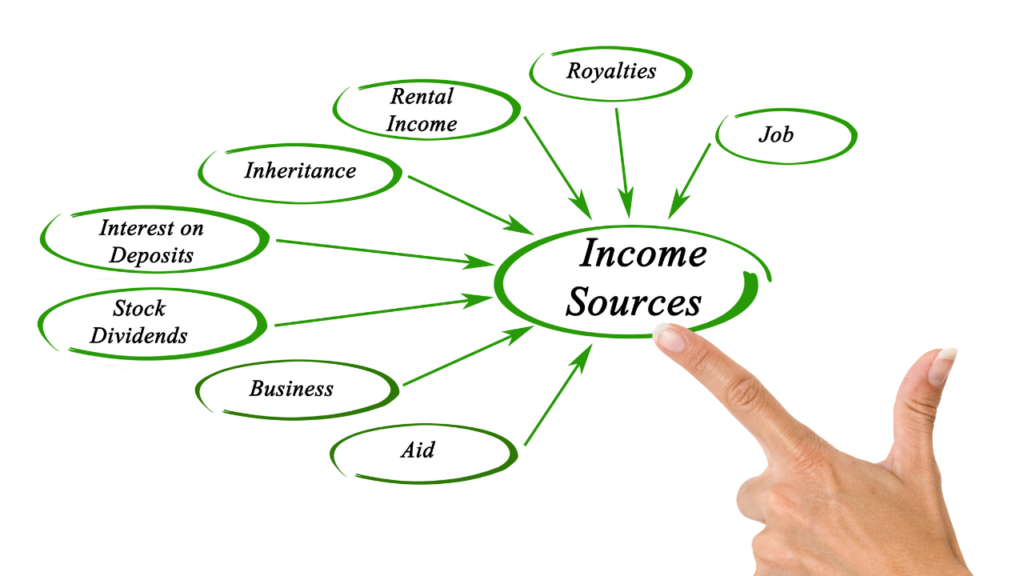
Achieving millionaire status is not simple. For the majority of people, it seems unattainable given the widening wealth disparity between the affluent and the poor. Yet, 80% of millionaires are first-generation “wealthy,” according to management theorist Thomas J. Stanley, who analysed more than 1,000 millionaires for his book “The Millionaire Next Door”. In other words, they created their fortune instead of inheriting it.
To build riches, you must have a favourable attitude towards money. This entails thinking that riches are available to you and assuming that you are deserving of it despite the structures in place to prevent you from obtaining it.
It is your responsibility to identify your own money narrative and determine whether it is preventing you from reaching your goals. For success, you must reframe your narrative through the eyes of a millionaire since they hold a different view. It requires work and dedication to learn how to become wealthy; it can’t be a stage you go through in life.
We’ve been told our entire lives that making money requires money. You need a consistent income stream and a run of good luck to succeed. And a lot of that is accurate. You do need to have an income in order to begin saving. It might also be considerably more difficult to see the light at the end of the tunnel when you have significant debt. Whatever the situation, it is always simpler to start again than it is to pull oneself out of a hole.
But you have to begin somewhere, and almost everyone who is affluent now did so at some time in their lives. Although having money does not guarantee contentment, it does offer access to alternatives and perhaps even a higher standard of living.
These are a few things you can do to start developing wealth from zero, even if you have no money or, perhaps worse, with debt.
1. Avoid the Limiting beliefs:

As per a study, most of our financial habits are developed by the age of seven. This implies that how others talk about or act around money has a big influence on how we think about it. Growing up without money or without the means to earn enough of it, believing that there is a paucity of resources, or witnessing others around you living paycheck to paycheck may make it more probable for you to feel that riches is only available to a selected few. You’re not altogether off-base either.
Each day, we experience a lot of unpleasant ideas. If we don’t develop the capacity to thwart those ideas, we start believing them. These may ultimately result in a mind-set of shortage and subsequent acts of scarcity. It is not a matter of denying our unpleasant experiences. Instead, it is utilizing them as propellant to aid in the construction of a better future.
You’ll start acting more optimistically once you start thinking more positively about yourself, your career, your ability, and your financial decisions. It can ultimately improve your life with some practice.
2. Keep your expenses low:
Maintaining your income in sync with your spending will be one of the biggest barriers to wealth accumulation. You need disposable income to grow, and if you spend all you earn, you will never have any money left over for savings.
The answer to this problem is straightforward. For as much as you can, you have to keep your spending as low as you can. Understand that this may just be a temporary situation while you work to improve your financial situation. Yet the fundamental truth still stands: When your costs are as low as possible, saving money is incomparably simpler. So begin by trimming your costs.

This falls under the category of good financial management, which is crucial for becoming rich and preserving the wealth. Financial planning is a habit and a way of life. You should pay attention to your spending habits. Thus, even wealthy people maintain a budget. Spending less than you earn is the key to wealth accumulation and maintenance.
3. Debt Management:
Another devil that can be sabotaging your ambitions of accumulating riches is debt. Regrettably, going into debt is easy, as several of us would have discovered this over the years. With a few credit cards and a few financially difficult months, you may quickly find yourself facing years of minimum payments on your credit cards. Of course, the answer to this problem has always been to remain out of debt in the first place.
Yet this solution isn’t really that simple for a lot of us. Today’s youth face a large pile of education loan, a situation that their parents did not face. We all obtain loans throughout our lives, not only for education. Examples of other loans include personal loan, housing loan, and car loan. The only way to get out of debt is typically the time-honored method, which is to pay it off at the earliest. You will be far better off if you avoid incurring additional debt and pay off the debts you already have, regardless of the loan’s intended use. You may use the avalanche or snowball methods to pay off your debt.
(Avalanche method – The debt avalanche approach is a debt repayment plan that starts with the loan that has the highest interest rate.
Snowball method – Using the snowball debt repayment approach, you may pay off the debts by prioritizing the one with the lowest outstanding balance first and then paying on the other balances.)
4. Create Multiple Streams of Income:
Most of us associate money with our standard 9 to 5 jobs or part-time employment, but this impression is gradually shifting. The new digital economy based on technology has been able to appeal to our desire to work independently. To start earning more money, you don’t need to start working a second job; all you need to do is figure out a way to make more than you are now making.

How can you do that, though? Identifying something or someone who will compensate you for it is the first step in starting a business. The key to accumulating money is to add value, which must subsequently be compensated through financial rewards. Whether it’s giving services, information, or expertise, if you’re not producing value, you have nothing with which to develop wealth. This value may come in a wide range of forms, including genuine monetary worth, entertainment value, time-saving value, educational value, pain-relieving value, etc. Also, you’ll see more prospects if you have greater creativity.
Find ways to get money with whatever talents or skills you may have. Use freelancing websites to look for a new side business. Your alternatives are only limited by your ability and drive. Of course, not everyone is a good candidate for every side gig, but that doesn’t imply we shouldn’t attempt anything.
The creation of many revenue streams by savvy business owners shields them from market swings. In other words, if one source of income disappears as a result of market circumstances, you will still have other streams of income to save you from losing money or experiencing a cash crunch.
5. Investing is equally important:
Another conceptual misconception that is simple to commit is thinking that earning a high income would eventually result in accumulating riches. In all likelihood, it won’t. Developing wealth takes deliberate expenditure management (as stated above), and along with this, it also entails investing any excess profits or income.
It’s time to move on to investing when you’ve reduced your spending and established a debt repayment strategy you can stick to. This could very well be the most crucial activity of all.
The longer cash is left unmoved, the more value it loses due to inflation, which refers to the gradual rise in the cost of goods and services. Hence, investing your money is a necessary part of accumulating wealth, whether it be through the stock market, real estate, a business, or another wealth-building strategy.
The chance to bring equality to all is provided through investing. The majority of people who don’t come from rich or financially savvy families fall prey to this. Yet, the emergence of internet brokerage firms has revolutionized this investing sector. Investment is now accessible to anyone.

As soon as you can, you should begin investing, even if it only amounts to a tiny sum. While you develop self-discipline as an investor, your perspective changes. Start off with Rs. 500 every month, and the compounding effect will cause that modest sum to increase over time. The idea is to start small, but consistency is the key here.
The most crucial aspect of this is that you will be able to accumulate riches with little work on your side by making the best investments (But investing in the right assets is not that easy as said here, but that is altogether a different topic for discussion, which is not dealt in this article, as I try to stick to the topic in our hand).
Just keep in mind that there is no one ideal technique to begin investing. It’s wise to invest in things that will increase in value over time and provide you a return on your money, like dividends or accrued interest. The objective is to strengthen your investment portfolio so that you can rely on passive income to support your lifestyle.
Conclusion:
Money may be inherited easily, but creating it from scratch is an entirely new affair. Yet, you must begin somewhere, and regrettably, sometimes that “somewhere” happens to be at far back of the line.
Wealth creation is very easy to do. One phrase sums up what you need to know: “Spend less than you make and intelligently invest the difference.” The key is in how you go about achieving that goal. Although following the advice in this article won’t make you wealthy overnight, but doing so will undoubtedly help you on your path to accumulating wealth.





